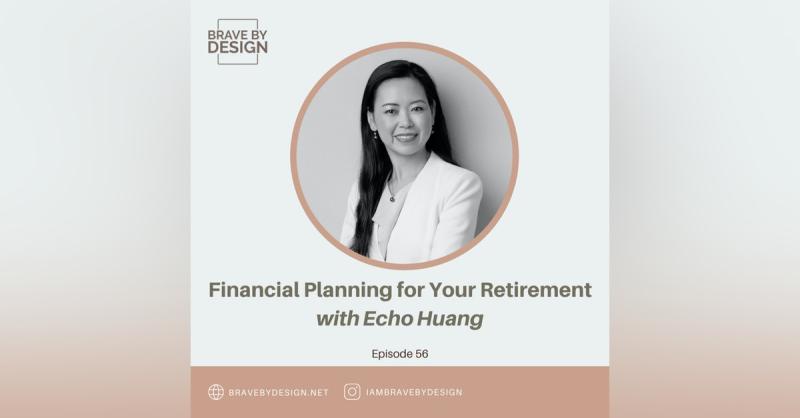The Heirless Estate: Don’t Let the State Get It
Choosing an Heir for Your Estate
Being prepared sets you up for success. Estate planning is all about your assets’ disposition and, for many people, this involves determining how to divide assets among heirs. What happens, though, when you don’t have a spouse or children or other obvious heirs to your estate?
Unfortunately, many people in this situation don’t feel it’s necessary to plan where their assets will go, making it more likely that their money will end up somewhere they wouldn’t choose—specifically, the state. For this reason, it’s always wise to have a strategy in place and to plan for various outcomes.
Understanding Inheritance Law
While regulations differ a bit by state, the standard inheritance hierarchy looks something like this: surviving spouse, children, grandchildren. If none of those relatives cannot be identified, assets can go to parents, grandparents, siblings, and nieces and nephews.
In instances where no such relatives exist, assets are escheated back to the state. Essentially, in the absence of a next-of-kin, the escheat process allows the state to lay claim to your assets and utilize your money for the public good.
Choosing Alternate Heirs
It’s not ideal to let the state decide the disposition of your hard-earned assets. So, you may want to consider choosing an alternative heir instead. Alternative heirs can be relatives, friends, or legally recognized non-profit organizations. Anyone can inherit your assets, so be thoughtful about who you designate as a beneficiary in the absence of obvious heirs. Of note: Some states will levy an inheritance tax, and it could be higher for a non-relative beneficiary.
If you choose a charitable organization to inherit your assets, you may also consider beginning your philanthropy while you’re still alive and able to witness your impact. If you’d like to go this route, you have several options open to you:
- Charitable Remainder Trusts. With this irrevocable trust, you receive an immediate charitable deduction based on the present value of the cash or other property that you transfer. You also receive a reliable income stream from the trust, which could be for a set number of years or the remainder of your life. Upon your death, the non-profit receives the remaining assets.
- Donor-Advised Funds. Here, you make an irrevocable, tax-deductible contribution of cash, securities, or appreciated non cash assets. You can then invest the funds for future potential growth and recommend grants to qualified 501(c)(3) charities you’d like to support. It’s relatively simple to set up a donor-advised fund and you can do it with a small amount, such as $50,000. You can learn more by visiting American Endowment Foundation, the one I’ve used for over a decade.
- Private Foundations. A family or an individual often founds this type of non-profit organization. It begins with an initial tax-deductible gift, managed by a board of directors or trustees. Sometimes, these trustees are paid for their efforts in controlling the disposition of your assets. With a private foundation, you may grant funds to qualified 501(c)(3) charities, as with a donor-advised fund, but you’re not limited to just qualified charities.
As you consider the above options, think through how much control and supervision you wish to have. All three charitable options are suitable ways to plan your estate, so base your choice on personal preference, as well as guidance from your financial advisor. It may even be possible to combine several of the approaches described above to accomplish your estate planning goals. It would be best to work with a tax professional who has experience in charitable giving before you implement any plans. This will ensure you’re meeting your goals in the most tax-efficient manner possible.
Non-Monetary Considerations
While your financial assets’ disposition is a critical decision point, it’s not the only consideration in your estate plan. Beyond money matters, you’ll also want to designate a person who can make decisions on your behalf, should you become unable to do so yourself due to injury or illness. You’ll want to plan for each of the following:
- Durable Power of Attorney for Finances. This legal document authorizes a person of your designation to handle financial and legal matters if you become incapacitated.
- Durable Power of Attorney for Healthcare. This document is like the above but authorizes your designated person to make medical decisions, rather than financial, on your behalf when you are unable to do so yourself.
- Living Will. This document details the medical interventions you would and, importantly, would not choose to undergo to keep yourself alive. In Minnesota, a Health Care Directive form combines Durable Power of Attorney for Healthcare and Living Will in one legal document. To learn more about Minnesota Health Care Directives, visit here: https://www.health.state.mn.us/facilities/regulation/infobulletins/advdir.html
Preparing the above legal documents ahead of time allows you to make your own, brassbound decisions. If you fail to take these steps, the state will determine your next of kin—possibly a very distant relation you had no contact with—to make decisions for you.
Naming an Estate Administrator
As you finalize your estate plans, you’ll also want to name an estate administrator, commonly called an executor or a personal representative. This is the person who takes over upon your death, handling matters such as probate court proceedings, distributing assets according to your wishes, sale of your property, and notification of your death to banks, credit card companies and other financial institutions. This step is critical to prevent identity theft.
When you have one or more heirs, it’s common to choose one of them to be your estate administrator. However, when you do not have an heir, you could instead select an attorney or accountant to serve in this crucial role. There are even professional executors available for hire in some states.
Be Prepared
Estate planning is vital at every age, though it becomes more crucial as you age—especially if you have no intended heirs. The sooner you’re able to choose an alternative heir, prepare for non-monetary considerations and name an estate administrator, the better. These decision points protect your estate and your financial and health decisions from being made in a manner you have no control over, and you can always revisit them if your situation changes and an heir emerges.
If you are making plans for your heirless estate and you’d like guidance, please contact us today. We can help take the complication out of the estate planning process and give you the support to make the best decisions that fit your distinctive situation.












